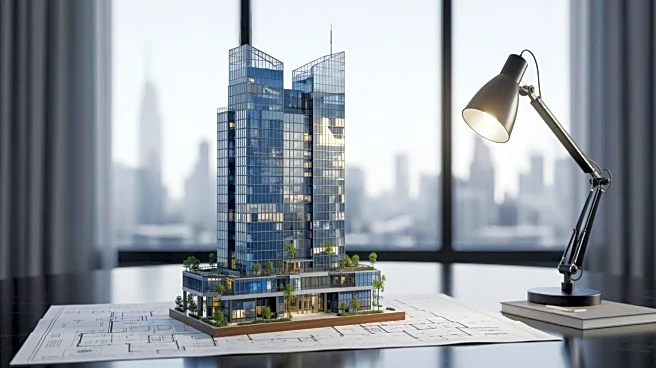What's Happening?
Serbian lawmakers have passed a special law enabling a controversial real estate project linked to Jared Kushner, President Trump's son-in-law. The project aims to redevelop a military complex in Belgrade
into a luxury compound, despite public opposition and legal challenges. The Serbian government had previously stripped the complex of its protected status and signed a lease agreement with Kushner-related Affinity Global Development. The project faced delays due to an investigation into potential document forgery. The government argues the project will boost the economy and strengthen ties with the U.S., but critics warn it undermines Serbia's legal system.
Why It's Important?
The approval of this project highlights the influence of international business interests in Serbia and raises concerns about legal integrity and corruption. The development is seen as a symbol of resistance to NATO's past actions, and its transformation into a luxury site could alter historical narratives. The project may impact Serbia's relations with the U.S., potentially aligning more closely with the Trump administration. However, it also risks deepening public distrust in government processes and exacerbating tensions over national heritage preservation.
What's Next?
The project is expected to proceed with demolition and construction, but ongoing public protests and legal scrutiny could pose challenges. The Serbian government may face increased pressure to address corruption allegations and ensure transparency. International reactions, particularly from NATO and EU members, could influence Serbia's diplomatic standing. The project's success or failure could set a precedent for future foreign investments in Serbia.
Beyond the Headlines
The development raises ethical questions about prioritizing economic gains over cultural preservation. It also reflects broader geopolitical dynamics, with Serbia navigating relationships between Western powers and Russia. The project's impact on local communities and historical sites may spark debates on urban development and heritage conservation.










